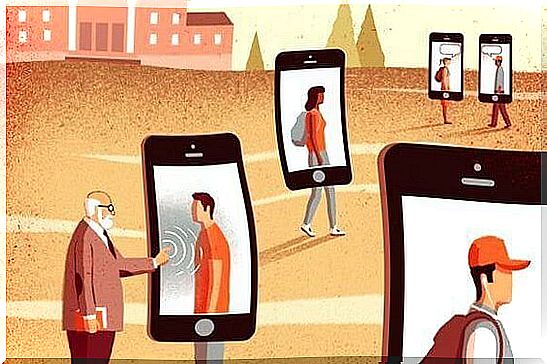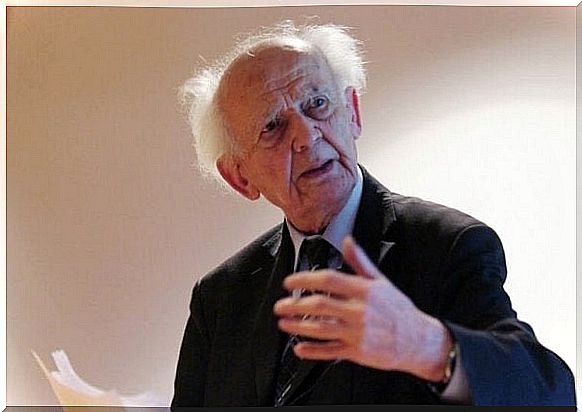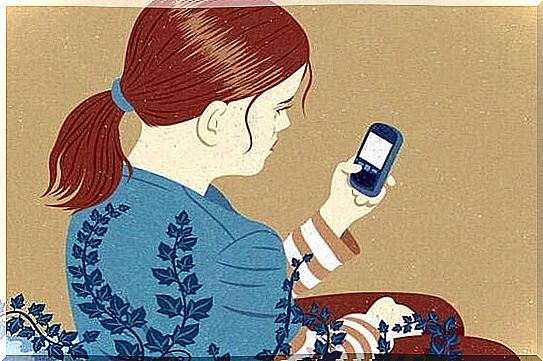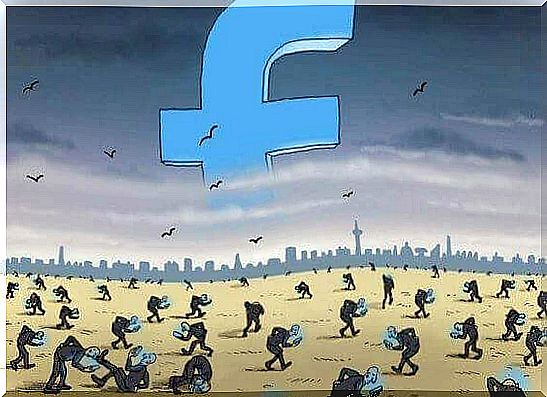Zygmunt Bauman: How Facebook And Social Media Are Robbing Us

Zygmunt Bauman was a Polish sociologist who gained worldwide fame and recognition through his book Fleeting Modernism . In it he denounces the fact that postmodernism brought about the collapse of “solidity”. Nothing is stable or permanent anymore. Everything is temporary, ephemeral and changeable. One of his biggest attacks was against the social media phenomenon.
Zygmunt Bauman did not have an easy life. He had to flee his own Nazi-occupied country. Eventually he managed to settle in Israel, and in the seventies he began to surprise the world with his theses. He has won several awards including the prestigious Princess of Asturias Award in 2010.
Zygmunt Bauman made a sharp analysis of the modern world. His revolutionary thoughts primarily concerned the Internet and social networks. He could see no virtue in them, nothing of value. He even went so far as to define them as modern traps that people stumble into and yet are perfectly happy about them.

Zygmunt Bauman and Facebook
Here is a surprising quote from Zygmunt Bauman: “ Facebook founder Mark Zuckerberg made $50,000,000,000 with his company, benefiting from our fear of loneliness. That’s exactly what Facebook is. “ However, he is not only referring to Facebook, but to all social media.
The sociologist emphasized that the genius Mark Zuckerberg had recognized how many people fear being alone. However, loneliness doesn’t seem to exist on social media. There is always someone willing to read our thoughts and expressions and praise us for them by giving us a supportive “like” or even sharing them.
People seem quite happy to be a part of completely irrelevant conversation – all in the name of life “on line”. We no longer spend our days in the company of other people. Our most loyal partner every day is our computer or smartphone.
The absence of dialogue and fellowship
As a sociologist, Bauman dealt with new technological dependencies. According to him, they are devastating, practically irresistible forces. They create an impressive pull of the “community”. There has never been anything like it before. And Zygmunt Bauman also believed that never was so much communication done without real dialogue or tangible results.
Zygmunt Bauman said that there was only a “filter bubble” on Facebook and similar platforms. Users only listen to what they want to hear. For him, social media are like a huge cabinet of mirrors, in which we meet other people but don’t talk to each other.

Adding and removing contacts on social media is way too easy. In real life, this is by no means that easy. Here we have to take responsibility for all of our actions. On the other hand, we don’t need that on the Internet. There is an exchange of messages, but no dialogue. There is disagreement, but not a really constructive debate. Social networks create the illusion of being connected to others, even though we are actually not.
The Kingdom of the “Public Self”
Social media invite us to flaunt ourselves to show who we are. Of course, we only choose the most presentable sides of ourselves in order to impress others. We form groups and communities that we manage at will. We are like little dictators in the realm of our social media profile. We are also the ones who decide who is allowed to be there and who is not. It doesn’t really affect us when we “unfriend” someone.
Our ego comes first on social media. Without our noticing it, we become dependent on how we “arrive” on Facebook. We want to be recognized and perceived in a certain way. We quickly get frustrated if this doesn’t happen.
Zygmunt Bauman viewed social media as a trap. He believed that they had a decisive influence on what he called “liquid culture”. Only precarious human relationships prevail in it. A love without substance and without obligation. Waves of feelings and ideas that are still there today and will be over tomorrow. Social media entertain people, but at the same time they control them more and more. We are not even aware of the political and economic forces that have us under their control.

For Zygmunt Bauman, the prognosis was not particularly encouraging. Despite so much information available, we are becoming more and more uninformed. We no longer know what to believe. Our communication is reduced to monologues and is not based on real communication. There is so much globalization that individualism is becoming more and more aggressive as a backlash. All that this “freedom” has brought us is to make ourselves more docile to those who want to control our lives.









